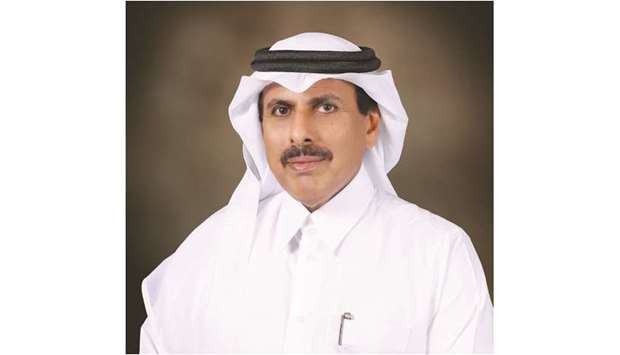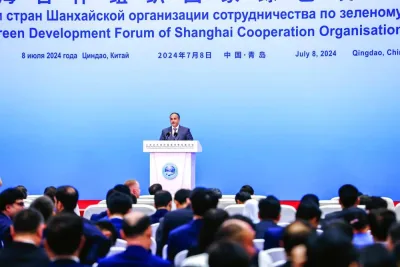Islamic finance plays a more appropriate role in meeting the developmental needs of ‘fragile’ economies, according to Qatar Central Bank (QCB).
In his keynote address at the fifth CEOs and Islamic Finance Leaders Roundtable: Social Financing Models’, organised by College of Islamic Studies, Hamad Bin Khalifa University (HBKU), QCB governor HE Sheikh Abdulla bin Saoud al-Thani gave an overview of the role of Islamic banks in redistribution of wealth and financial inclusion as part of sustainable development.
Highlighting that the Second Strategic Plan (SSP) for Financial Sector Regulation (2017-22) seeks to promote financial inclusion and foster financial innovation; he said QCB attaches greater importance to fintech.
The use of fintech has become necessary in view of the challenges facing global information security, which necessitates improving the credit information network and taking all precautions to maintain the security and safety of information in the financial sector.
QCB is providing the enabling regulatory framework for fintech and as part of this, it is proposed to introduce fintech strategy, accompanied with strong risk culture and other related controls.
In view of fintech, Sheikh Abdulla said Qatar has been proactive in improving its cyber-defence mechanisms and a Qatar financial sector information security strategy has been published by QCB in June 2017.
Consisting of five concurrent and continuous functions, the strategy defines the development and functioning of security layers to address national interests, security objectives, security risks and challenges to the financial industry.
QCB has established a dedicated cyber security function to guide financial institutions and help them in protecting the underlying information infrastructure from potential threats, and maintain a high level of cyber resilience.
Dr Abdulfatah Mohamed, Adjunct Professor, Hamad Bin Khalifa University, said the emergence of latest technologies such as blockchain, crowd funding has increased the viability and reach of social financing.
A consultation paper of HBKU highlighted that United Nations Development Programme is helping to develop the first blockchain enhanced digital Waqf platform to increase Waqf collections and enable more effective use of Waqf land.
On Islamic finance, the central bank governor said it is the more appropriate tool to meet the development needs of ‘fragile’ economies.
He said financial inclusion plays a major role in diversifying the product portfolio and also help address the key challenges within the small and medium enterprises.
According to the strategic goal 4 (of SSP), the role of financial inclusion is a key policy strategy to promote sustainable growth, create employment opportunities, reduce inequality and safeguard financial stability.
Business / Business
Islamic finance plays key role to meet development needs of ‘fragile’ economies: QCB chief

HE Sheikh Abdulla: Financial inclusion is a key policy strategy to promote sustainable growth.



